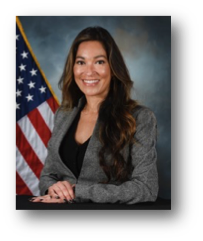About - DoD Information Strategy Research Center
About ISRC
The Department of Defense Information Strategy Research Center (DoD ISRC) facilitates research and exploration of information warfare strategies and concepts, conducts field experimentation and analysis, and supports graduate-level education on Operations in the Information Environment and Political Warfare. The DoD ISRC works to support information operations force development by working directly with graduate students on information operations focused theses as well as collaborating with our DoD partners and academic institutions.
Meet the ISRC Team

Ryan Maness
Ryan Maness (PhD, University of Illinois, Chicago) is the Director of the DoD’s Information Strategy Research Center (ISRC) and an assistant professor in the Department of Defense Analysis at the Naval Postgraduate School. His research includes operations in the information environment, specifically in cyberspace, cyber strategy, and power dynamics and interactions among states in cyberspace. His forthcoming book, Cyberwar versus Cyber Realities 2.0, is a second edition of his 2015 book with Oxford University Press. He has also published Cyber Strategy (2018, Oxford) and Russia’s Coercive Diplomacy (2015, Macmillan) as well as several top journals in security studies. He teaches Conflict in Cyberspace and Computer Network Attack and Defense in the Defense Analysis Department at NPS.

Rebecca Lorentz
Ms. Rebecca Lorentz joined the Naval Postgraduate School in 2009 and is currently the Deputy Director for Research for the DoD Information Operations Center in the Defense Analysis Department. She earned a Masters Degree in Public Policy from the Panetta Institute of Public Policy. Rebecca has published on topics such as wicked problems (Gangs and Guerrillas, 2010), civil society’s role in irregular warfare (Afghan Endgames, 2012), and cultural resiliency (CTX journal, Feb 2013). Her most current research focus is on cognitive and cultural biases and how they influence behavior in the information environment. Additionally, she conducts outreach and game facilitation support for Global ECCO (Education Collaboration Community Online), sponsored by the Combatting Terrorism Irregular Warfare Fellowship Program (CTFP) under the Office of the Secretary of Defense.

John Arquilla
John Arquilla earned his degrees in international relations from Rosary College (BA 1975) and Stanford University (MA 1989, PhD 1991). He is professor of defense analysis at the Naval Postgraduate School, where he has taught in the special operations curriculum since 1993. He also serves as director of the Information Operations Center. His teaching interests revolve around the history of irregular warfare, terrorism, and the implications of the information age for society and security. His books include: Dubious Battles: Aggression Defeat and the International System (1992); From Troy to Entebbe: Special Operations in Ancient & Modern Times (1996), which was a featured alternate of the Military Book Club; In Athena’s Camp (1997); Networks and Netwars: The Future of Terror, Crime and Militancy (2001), named a notable book of the year by the American Library Association; The Reagan Imprint: Ideas in American Foreign Policy from the Collapse of Communism to the War on Terror (2006), and his latest study, Worst Enemy: The Reluctant Transformation of the American Military (2008), which is about military reform. Dr. Arquilla is also the author of more than one hundred articles on a wide range of topics in military and security affairs, with his work appearing in both the leading academic journals and in more general publications like The Atlantic Monthly, Wired and The New Republic. He is best known for his concept of “netwar” (i.e., the distinct manner in which those organized into networks fight), a notion developed with his colleague David Ronfeldt, and which former defense secretary Donald Rumsfeld used on several occasions to describe the nature of the conflict in Iraq. In another area of their joint work, the Arquilla/Ronfeldt vision of “swarm tactics” was selected by The New York Times as one of the “big ideas” of 2001. In terms of policy experience, Dr. Arquilla worked as a consultant to General Norman Schwarzkopf during Operation Desert Storm, as part of a small team of RAND analysts. During the Kosovo War, he assisted deputy secretary of defense John Hamre on a range of issues in international information strategy. Since the onset of the war on terror, Dr. Arquilla’s policy contributions have included a brief period of service on the Information Operations Task Force, followed by more extended involvements with special operations forces and other units, on practical, information-related “field problems.”
